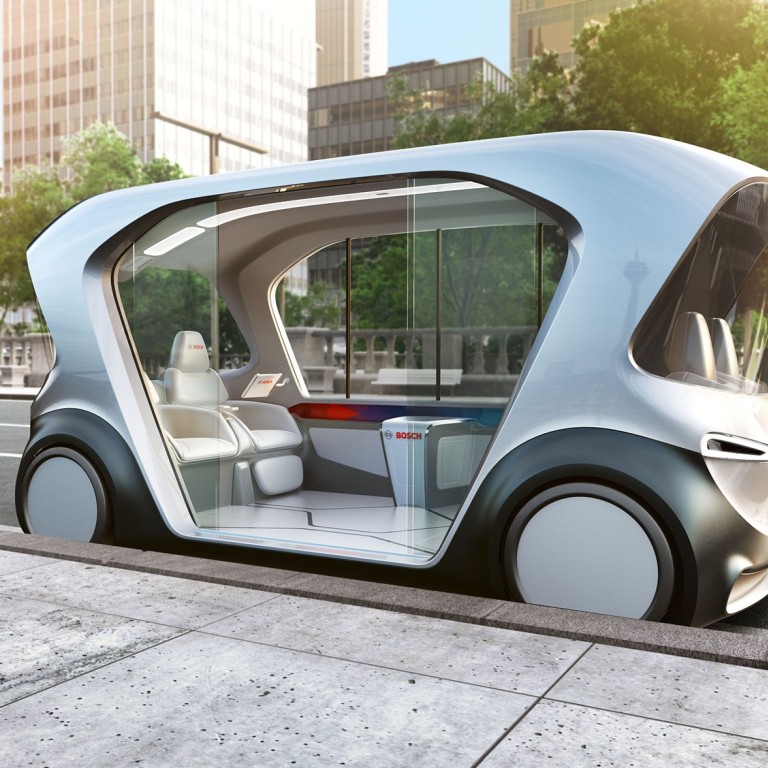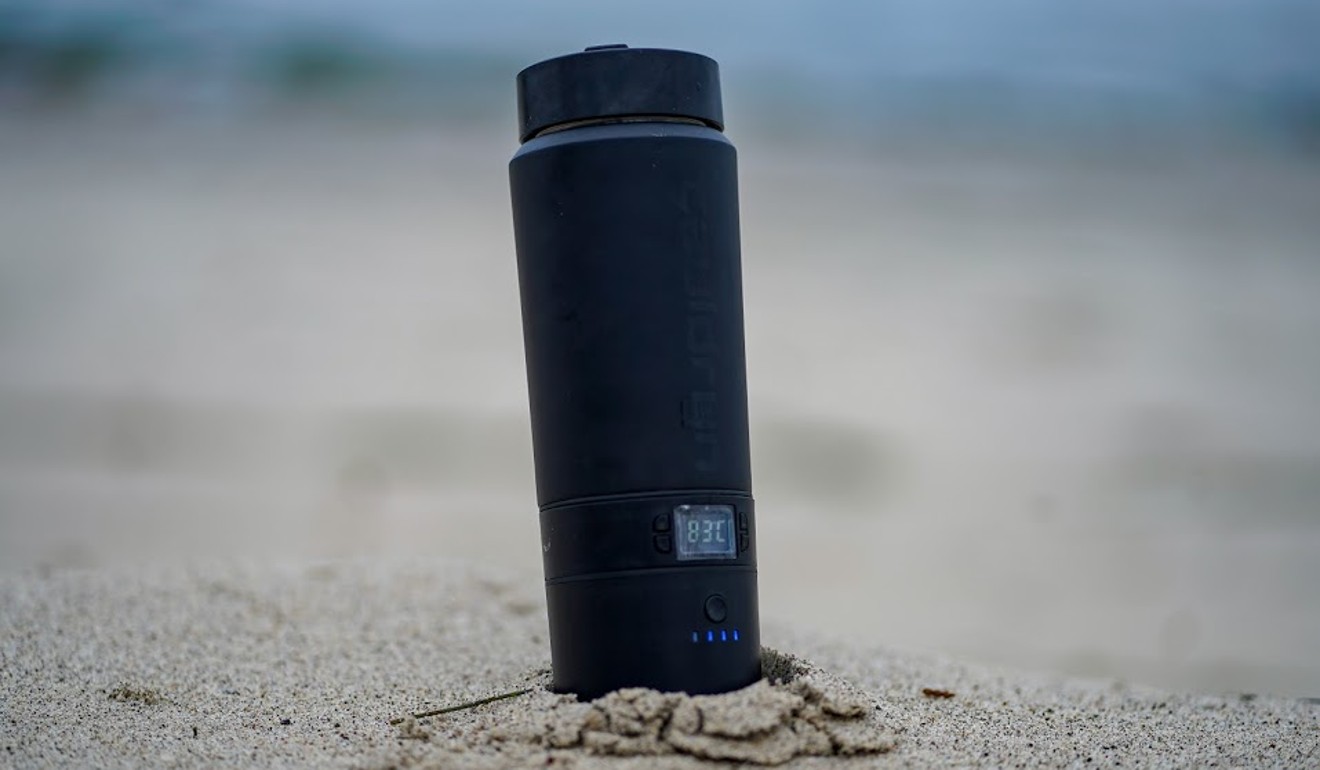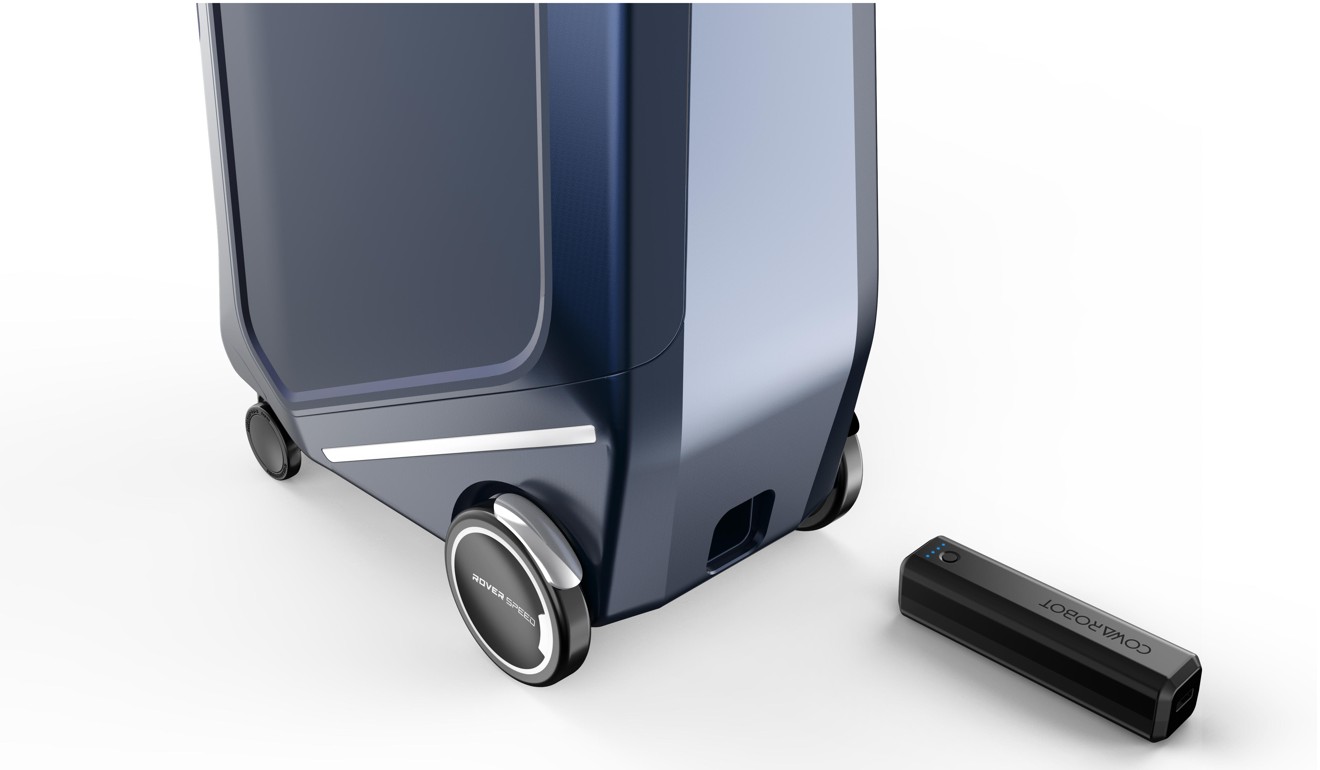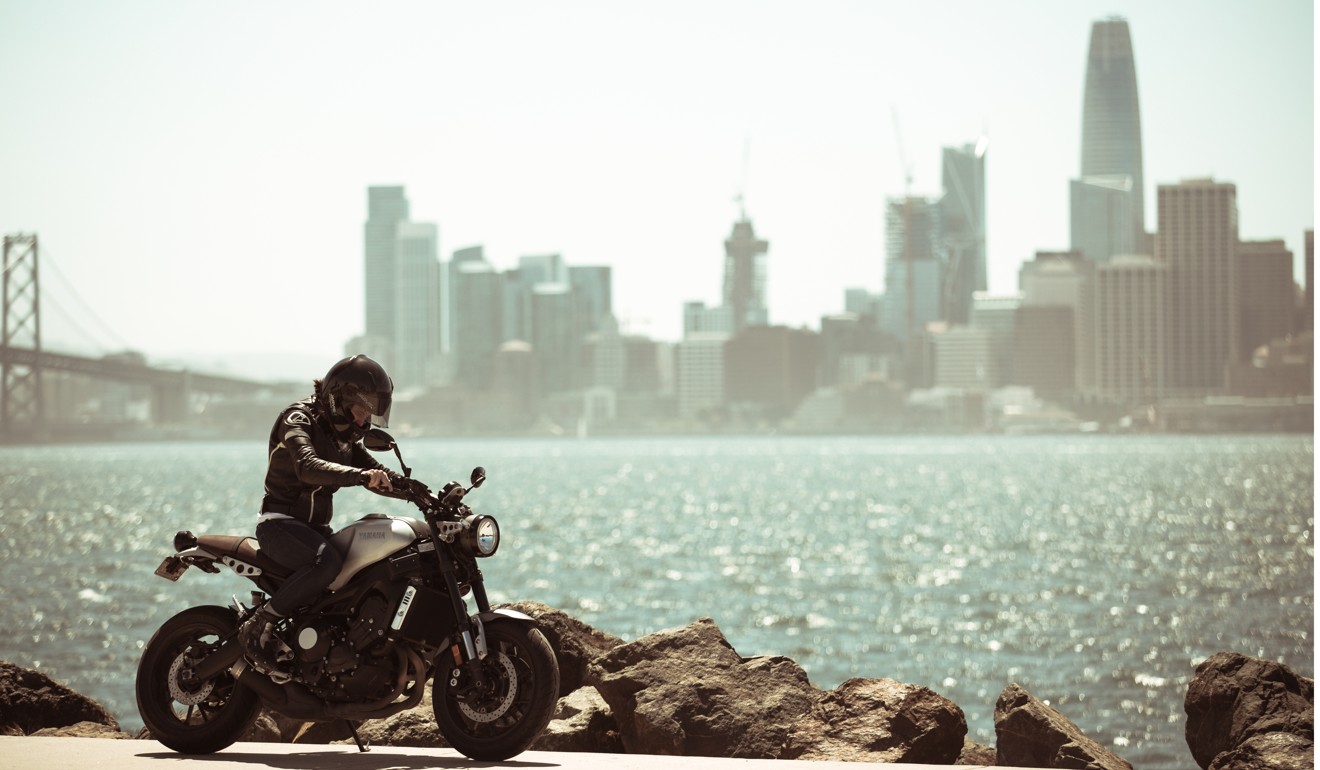
Best travel tech from CES 2019, from auto-follow suitcases to a motorcycle helmet that gives you directions
- This week’s CES consumer tech show in Las Vegas saw plenty of innovations that could help define the future of travel
- Who wouldn’t want a smart flask that grinds coffee beans and percolates fresh coffee?
Are you travelling with the latest tech?
This week’s CES 2019 in Las Vegas – the biggest tech convention in the world – saw plenty of innovations that could help define the future of travel.
8K TVs, 5G, in-vehicle tech: record US tech sales forecast for 2019
From a “smart helmet” for motorcyclists that gives you 360-degree visibility while letting you talk to voice assistants like Alexa, Siri and Google, to long-range trackers that make it harder to get lost while skiing or hiking in a group, the innovative devices promised to add new dimensions to a wide range of activities.
We look at five of the best travel devices unveiled at the show.

Cauldryn Coffee smart flask
There are myriad travel-friendly collapsible cups out there, while savvy travellers will no doubt be equipped with at least one vacuum-sealed flask. But the Cauldryn Coffee flask (US$130/HK$1,015, cauldryn.com) goes much further.
The 16-ounce vacuum-sealed flask is just as suited to tea-drinkers, since its core ability is to maintain liquid temperatures for up to 10 hours. That is significantly more than most, but there is even more to this modular flask.
Add-ons include a percolator that brews up to two cups of coffee, a blender for either grinding coffee beans or mixing drinks/crushing ice, a camping lantern with integrated bug-zapper, and a Bluetooth speaker base that fits onto the bottom of the flask.

Cowarobot Rover Speed travel robot
Rover Speed, the world’s first AI-powered auto-follow suitcase, was created by Chinese unmanned vehicle tech company Cowarobot. It self-drives using obstacle-avoidance tech, and sends alerts to your phone over Bluetooth if you get more than two metres away from it.
Sounds a bit needy? That’s autonomous robots for you. But it has also got a flight-approved 6400mAh rechargeable lithium battery inside for charging your phone, so you will not want to lose it.
It is due out later in January, in phantom black and racing red.

Jarvish X-Series motorcycle helmets
Remember Google Glass? Those glasses equipped with a tiny camera and heads-up display failed as a consumer item because of privacy concerns, but similar tech is very much at the core of this range of smart motorcycle helmets.
Front and rear cameras together produce 360-degree vision for the rider – the rear-view appears on the heads-up display – with integrated surround sound speakers adding 360-degree audio.
While journeys can be recorded in video and stored on a memory card in the helmet for a dash-cam style experience, riders can also use its noise-reducing microphone to tell Alexa, Siri or Google Assistant to broadcast that video in real-time to a user’s social media account.
A prototype helmet called the X-AR (augmented reality) adds voice-activated navigation, so riders can request a destination by voice and receive audio directions to that location inside the helmet.

LG Gram 17Z990 ultralight laptop
Who wouldn’t want an ultralight 17-inch laptop that lasts almost 20 hours on one charge?
That is LG’s claim for the new LG gram 17Z990 (US$1,700/HK$13,300, out soon in white or dark silver), which weighs 1.3kg and is set to be the lightest 17-inch laptop on the market (most weigh almost 2kg).
Equipped with the newest eighth-generation Intel Core processor, the laptop comes with a 256GB solid-state drive (SSD) and has an extra slot for an additional SSD. Those working in darkened airline cabins will appreciate its backlit keyboard with two brightness settings.
A tough piece of kit, it is resilient to being dropped, getting dusty and to extreme temperatures.
LG also showed-off its 14-inch 14T990, a two-in-one convertible laptop that transforms from laptop to tablet and back again.
Bosch driverless electric shuttle
Ride-sharing has long been popular, so when everything goes electric, we are going to need a new generation of purpose-built electric vehicles for “mobility on demand”.
Cue a new class of vehicle for “shuttlemobility”, and one of the first of its kind shown off in Las Vegas by Bosch: a prototype of a driverless electric shuttle.
Baidu to test driverless delivery vans in US for Walmart
It has got all the tech that driverless vehicles need, such as being able to determine its exact geographical position down to a few centimetres – vital for obstacle avoidance.
Users will be able to easily book the shuttle via smartphone, with an algorithm identifying the closest vehicle and others wishing to travel nearby, thereby reducing congestion. That same smartphone can then be used to open the door, and automatically pay for the ride.

